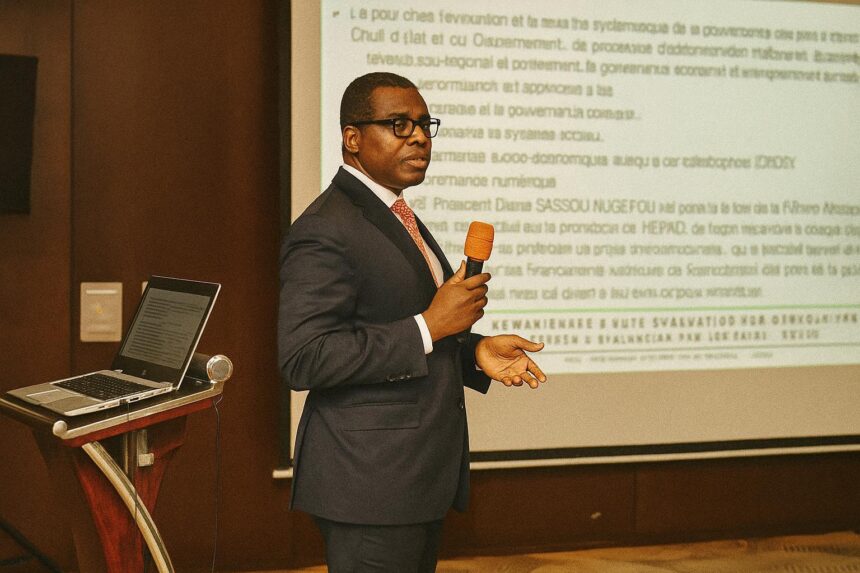From Lagos to Agenda 2063: Continental Context
Few continental initiatives have traversed so deliberate a trajectory as the African Peer Review Mechanism. Conceived in 2003 under the auspices of the African Union and NEPAD, its genealogy reaches back to the Lagos Plan of Action of 1980, itself a visionary yet pragmatic attempt at forging economic integration across Africa. Subsequent milestones, including the pivotal La Baule symposium of 1990 and the institutionalisation of NEPAD in 2001, steadily converged toward a culture of voluntary self-scrutiny. The APRM emerged as a diplomatic instrument designed to embed political stability, sustainable growth and corporate integrity within member states, consistent with the forward-looking compass of Agenda 2063 (African Union, 2015 Framework).
Brazzaville’s Re-energised Mandate
Against this continental canvas, the Republic of Congo’s decision to reactivate its National Commission demonstrates a measured but unmistakable resolve. Officially sworn in on 14 November 2024, the commissioners convened for an inaugural working luncheon on 17 July 2025 at the Grand Lancaster Hotel. Presiding chair Alain Akouala-Atipault emphasised that the core task remains to assess whether Congolese public policies align with the APRM’s governance codes. He reminded his colleagues that the mechanism is voluntary by design, thereby allowing Brazzaville to shape its own narrative while conforming to continental benchmarks.
In diplomatic terms, the renewed Commission signals continuity with President Denis Sassou Nguesso’s long-standing advocacy for pan-African cooperation. His earlier tenure at the helm of the Organisation of African Unity in the late 1980s, notably marked by the creation of the Africa Fund to combat apartheid, underscores an institutional memory that the current body can leverage.
Operational Realities: Capacity and Coordination
Officials concede that Congo-Brazzaville is yet to complete its first full review cycle, a delay that places it behind regional peers such as Rwanda and Kenya, both lauded in the 2023 APRM Secretariat report for punctual submissions. Yet the structural environment in Brazzaville is far from barren. A mosaic of specialised institutions—the High Authority for the Fight against Corruption, the Court of Accounts and the Ministry of Planning, among others—already collect governance-relevant data. By synchronising these domestic resources, the Commission expects to attenuate the learning curve that often accompanies inaugural reviews.
Logistics do, however, require urgent attention. The Commission’s current premises on the 16th floor of the iconic Nabemba Tower offer symbolic altitude but limited functional space. Discussions with the Ministry of Public Works are underway to identify a dedicated facility that meets the confidentiality and archival specifications stipulated by the APRM Continental Secretariat (UN Economic Commission for Africa, 2024 Advisory). Government interlocutors indicate that an inter-ministerial decree could be issued before the next fiscal quarter, a timeline consistent with the pragmatic tempo adopted throughout this process.
Diplomatic Capital and Regional Optics
Participation in the APRM is more than bureaucratic compliance; it is a currency of soft power within Africa’s increasingly sophisticated diplomatic marketplace. By advancing its self-assessment, Congo-Brazzaville positions itself as an interlocutor of credibility in regional security dialogues—from the Gulf of Guinea maritime architecture to ECCAS institutional reforms. External partners, including the African Development Bank and the European Union, have historically calibrated portions of their budget-support envelopes to demonstrable governance metrics (AfDB Governance Index, 2022 edition). Enhanced transparency, therefore, promises both reputational dividends and tangible developmental co-financing.
Charting the Path to the First Review Mission
The Commission has outlined a phased roadmap that reflects continental best practice. Phase one involves a country self-assessment report, to be drafted with methodological support from the APRM Continental Secretariat and peer consultants drawn from Côte d’Ivoire and Ethiopia. Subsequently, a high-level review mission—customarily led by a former African head of state—will engage national stakeholders, including parliamentarians, civil-society networks and the private sector. The anticipated timeframe, according to senior official Nadège Ngoma, Deputy Coordinator for Technical Affairs, is the second semester of 2026.
Ensuring the report’s ‘technical competence, credibility and freedom from data dilution’, in the words of Alain Akouala-Atipault, will be paramount. To that end, the Commission intends to employ mixed-method research, combining household perception surveys with granular fiscal analytics. Such triangulation mirrors the methodology praised by the 2023 Sierra Leone review and should, in Akouala-Atipault’s assessment, yield findings robust enough to inform legislative and executive reform agendas without compromising national sovereignty.
Toward 2063: Strategic Implications
Congo-Brazzaville’s re-engagement with the APRM dovetails with its broader Vision 2030 plan and, more expansively, with Agenda 2063. Successful completion of the review would not only demonstrate adherence to continental norms but also provide an empirical baseline for monitoring the National Development Plan’s objectives on industrial diversification, digital governance and environmental stewardship. As Africa’s energy transition accelerates, governance matrices will increasingly influence investment flows, particularly in natural-gas monetisation and green-hydrogen pilot projects under discussion in Pointe-Noire.
In this light, the Commission’s work is less an administrative checklist than a strategic fulcrum, capable of translating diplomatic goodwill into measurable socio-economic progress. The luncheon in Brazzaville may have been ceremonially convivial, yet its subtext was unmistakably pragmatic: the mirror offered by the peer review will reflect only what the nation chooses to reveal—and to refine.





















